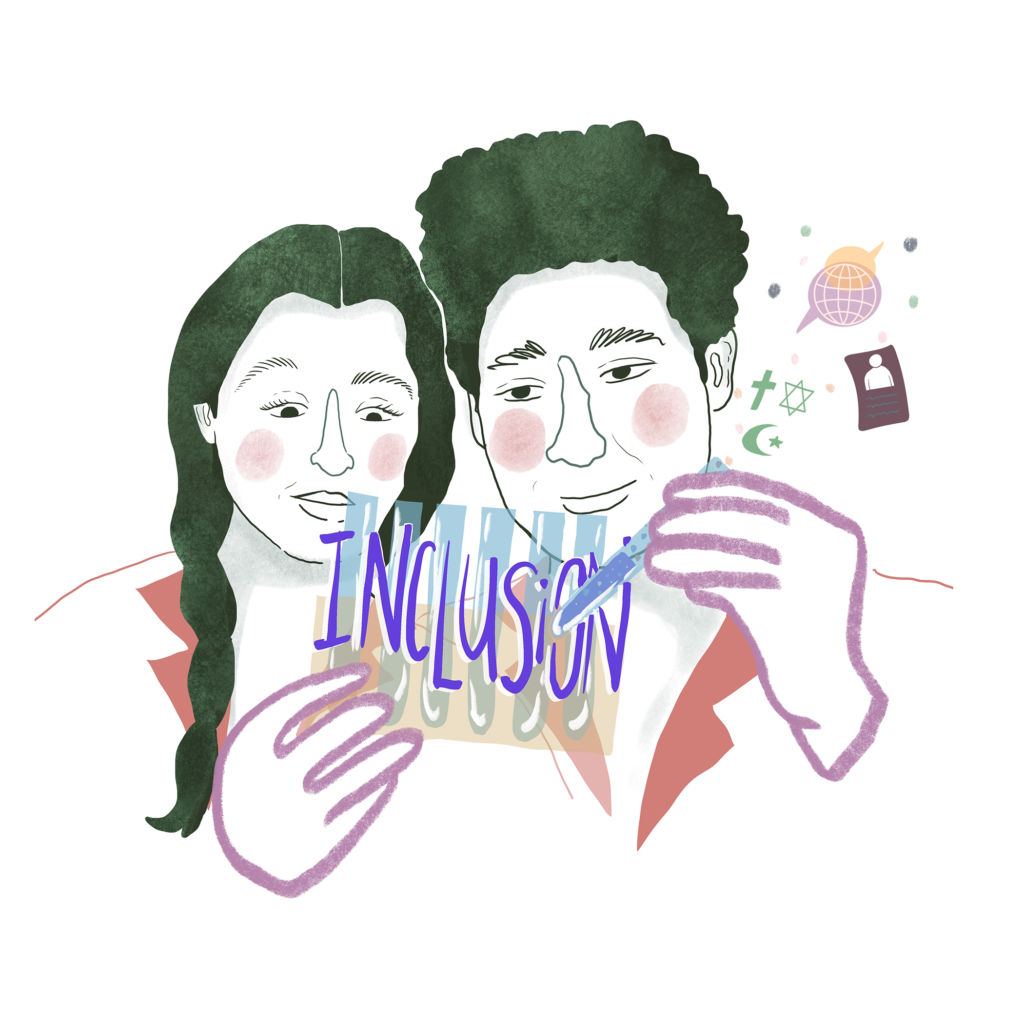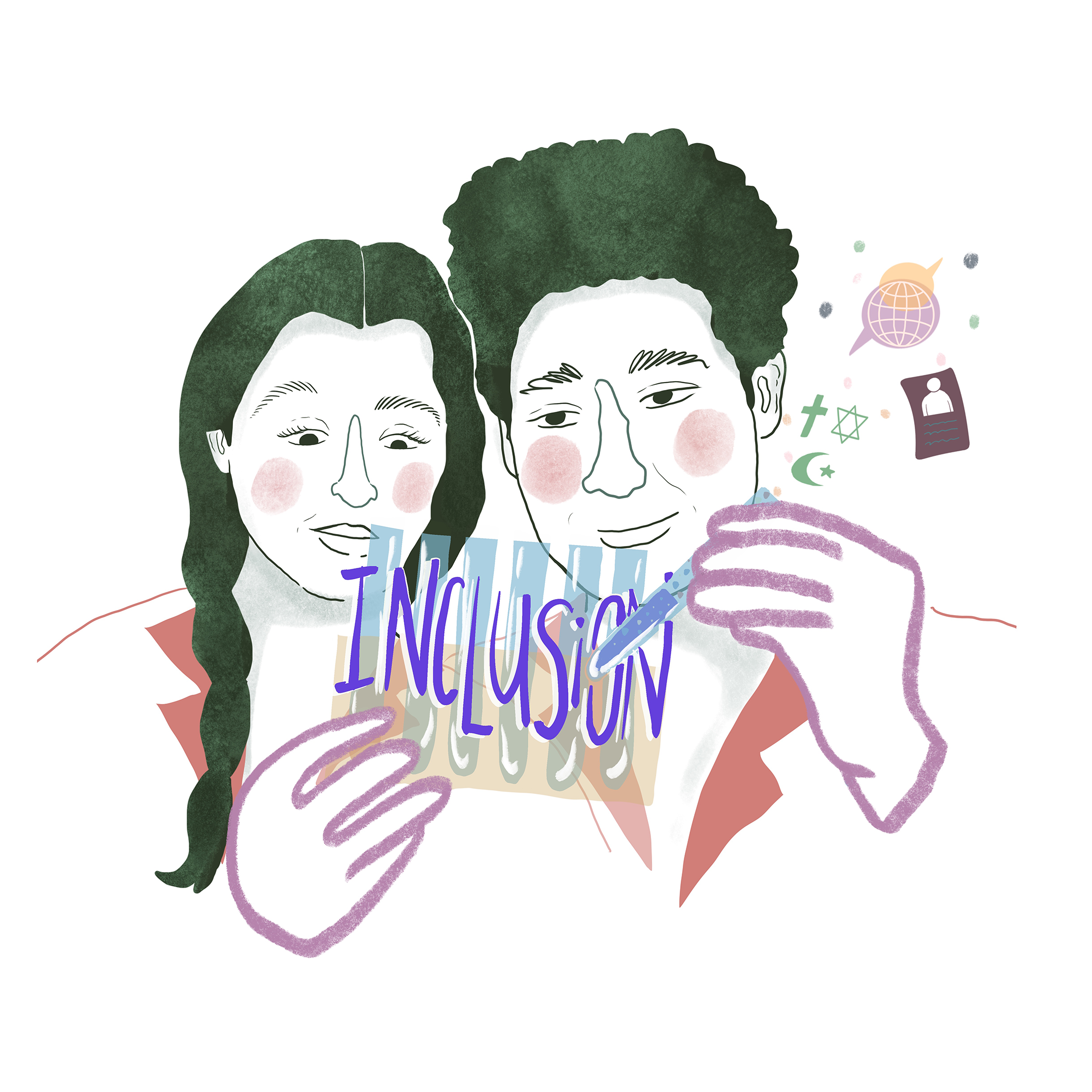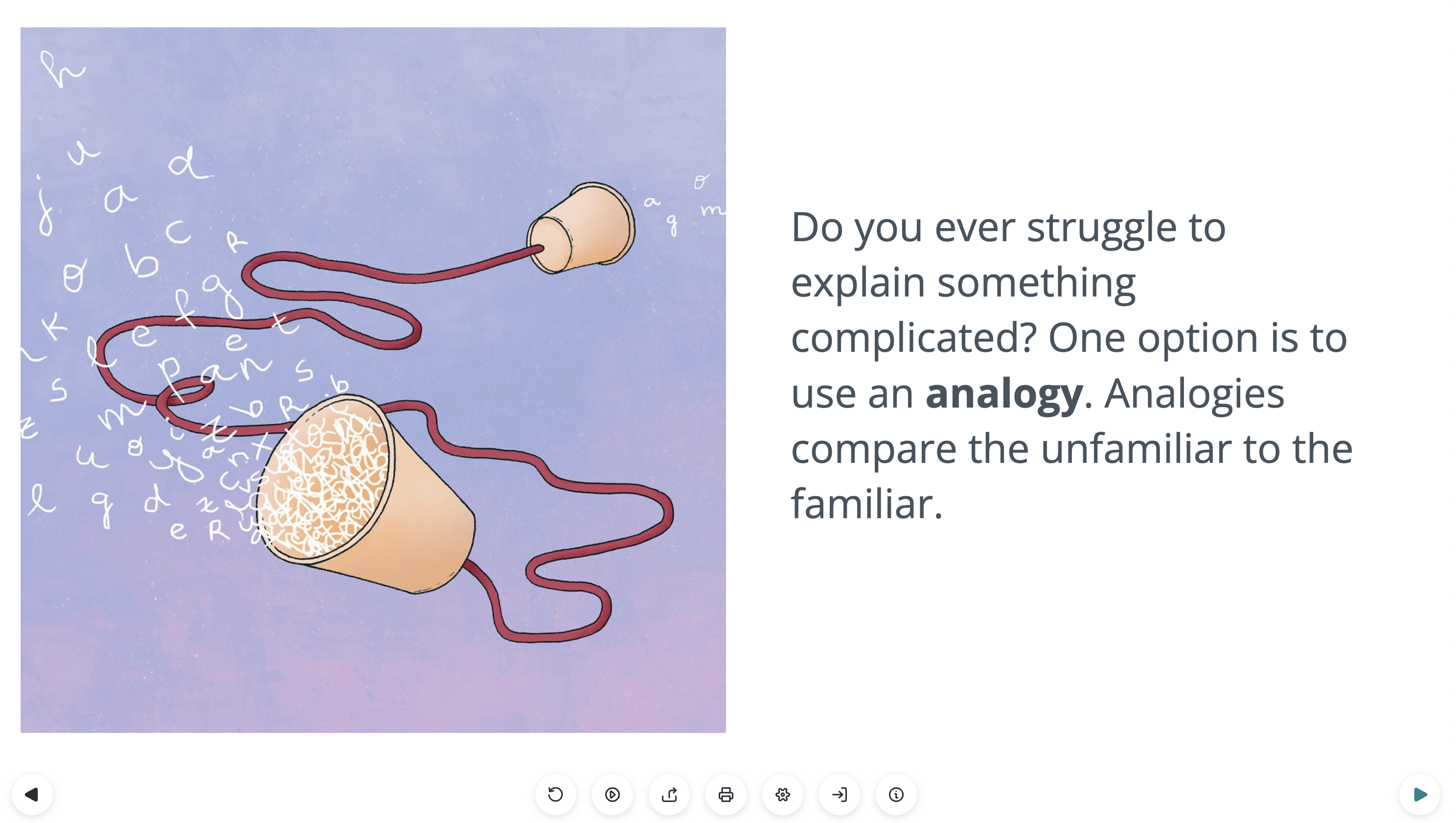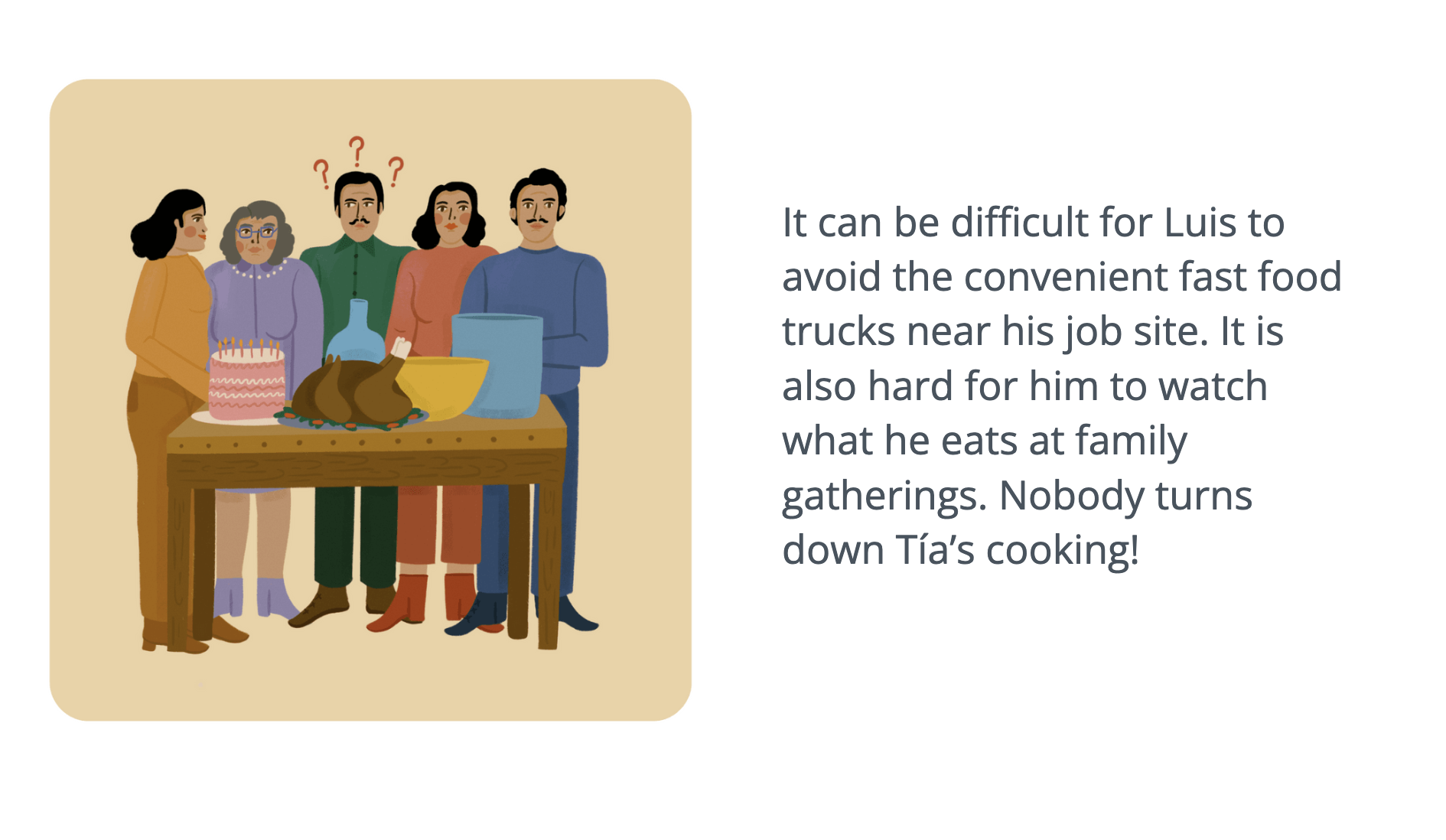By Mónica Feliú-Mójer – Spanish version available here.
Making your science communication more culturally relevant and inclusive requires not just learning but also practice. To learn more about culturally relevant SciComm, check out this Lifeology course I helped to create! Once you review the course, I invite you to reflect on and answer the following questions to help you put what you’ve learned into action.

Inclusion. Image by Mya Pagan.
Know your audience
First, think about a science idea, concept, or discovery you’d like to share with someone. Next, write down as much as possible about that someone (i.e., your audience). Who are they?
- What are their cultural backgrounds?
- What languages do they speak?
- What are their context and identities?
- What do they care about?
Be as specific as possible. And write down as much as you know about them. Since you may not be able to ask these questions of your audience directly, you may have to make certain assumptions. But be careful about not perpetuating stereotypes or biases.
Know yourself
Now, write down as much as possible about yourself.
- What are your cultural backgrounds?
- What languages do you speak?
- What are your context and identities?
- What do you care about?
- What do you have in common with your audience?
- What privileges do you have?
- What biases might you have about your audience?
Practice self-awareness and embrace discomfort. I invite you to check out the Inclusive Science Communication Starter Kit and these additional resources for additional strategies you can use.
Know your message—and make it culturally relevant
Think back to the science idea, concept or discovery you’d like to share with your audience.
Considering the cultural characteristics of the audience you just identified, what are some ways in which you can convey the science idea, concept, or discovery you have chosen in culturally relevant ways? You can refer to some of the strategies discussed in the Lifeology course or come up with others.
I encourage you to write down your message—the old way you would have shared it and in a culturally relevant way. How are they different? Which version do you think would resonate more with your audience? Why?
If you’d like, submit your response to Lifeology@lifeomic.com or post it in the Lifeology Slack workspace for feedback!





